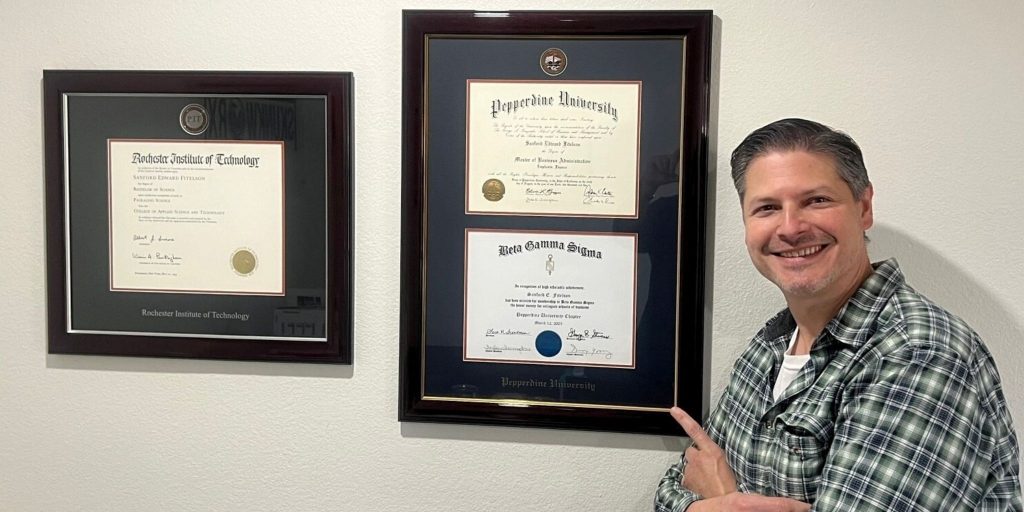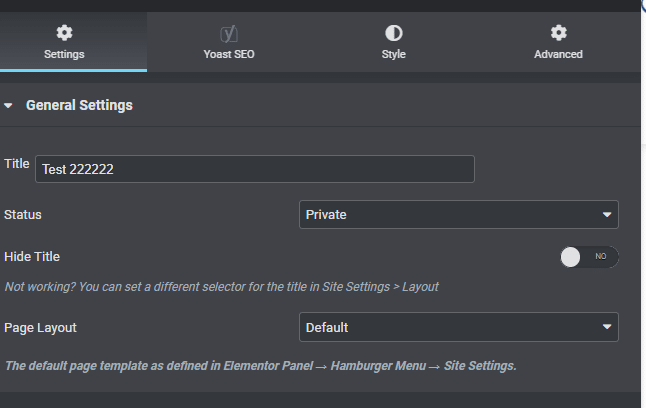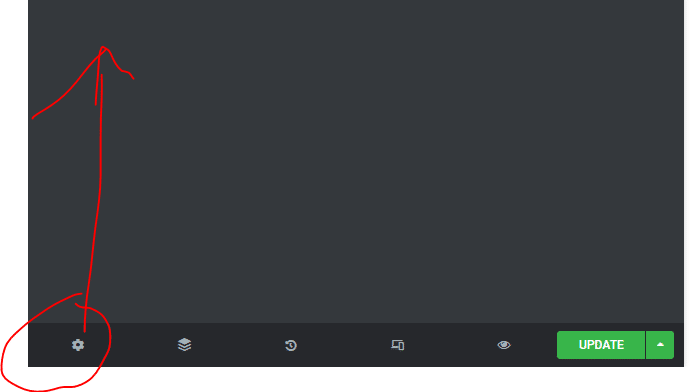
Is it time to change jobs? The question of when to change jobs is always pertinent in our current labor market. Whether you’re a recent grad or in the middle of your career, the odds are good that at some time or another, you’ve wondered if you’re in the right place. It may be that you no longer get excited about the work you do. You may be looking for a better work-life balance. You may have reservations regarding your project manager or your company as a whole. Perhaps you’re looking to take the next step in your professional life or to change to an entirely new field or industry. Whatever the reason, changing jobs is an important question that involves thoughtful consideration.
Below, we’ve listed some common reasons why someone may be looking for a job change. In each section, we’ll unpack special considerations for each reason. In the end, we hope it will help you better evaluate whether you should try and stick it out with your current employer, or whether it’s time to move on and start the job search. Because each individual’s situation can vary, it would be impossible to address every concern that may arise. However, this should be a helpful start as you begin to think about changing jobs and your long-term career goals. After you’ve spent time reflecting on your career development objectives, consider reaching out to a trusted friend, family member, or mentor who can give their input. How to know when to change jobs can be a very personal decision, so it’s a good idea to bring others into the conversation who know you well.

1.) Wrongdoing, Unsafe, Unethical Practices
This reason is straightforward, and unfortunately all too common. If your current employer is engaged in unsafe, illegal, or unethical behavior, it’s one of the clear signs it’s time to peruse job openings. It could be that you’re subject to physically dangerous working conditions. It could be that your coworker or manager is dishonest, manipulative, or verbally abusive. It could even be that your employer breaks laws or regulations that govern your industry. In any of these cases, it’s worthwhile to tread wisely and consider your situation carefully. Can this issue be resolved with a conversation with your manager, or a representative from HR? Are you obligated to report illegal activity to upper management, or legal authorities?
Unless you are physically unsafe in your current work environment—in which case you should leave immediately—it is usually prudent to try and address the issue through established channels, and leave only after your efforts are unsuccessful. It may be that your employer is willing and able to listen to these serious issues and resolve them. If not, these efforts still serve you well. As you interview for your next position, and you receive questions like “What was your last job, and why are you leaving it?”, you can answer without great resignation. You’ll be able to discuss the issues at your previous employer as well as all the steps you took to resolve the problem before leaving.
2.) Relational Problems
One of the biggest factors that can turn a great employment experience into a terrible one is the relational aspect. Conflict and workplace drama can sour an otherwise positive work environment. It’s perfectly normal if you don’t feel close to your team members or manager. Many office relationships are simply professional acquaintances and not personal friends. If your interactions with others in your workplace are cordial but rarely warm or personal, this may not be grounds to leave your employer. After all, you may find that the exact same “problem” occurs at your next workplace!
However, if you find that your relationship with your coworkers is strained, hostile, and unprofessional, it’s natural to ask yourself “should I change jobs?”. Depending on the situation, you may have good grounds to consider switching careers. Any issues that you can, try and resolve with the coworker directly. If the issue persists, this would be the time to get a manager or Human Resources involved. Insults and discriminatory comments are unacceptable in a workplace environment, and you may need a higher-up to help address the problem.
Like in our first situation, with wrongdoing or unethical practices, it’s always best to try and first find a resolution that doesn’t involve changing jobs. However, if you are not able to come to a resolution on a conflict, and it continues to impact your work, it’s time to change jobs. Most people spend over a quarter of their week in the workplace; you want to spend that time in an environment that’s comfortable and welcoming.

3.) Unmet Expectations
Almost everyone has been in a full-time job that has not lived up to their expectations. If you’re newly in a role and are beginning to find the job title is not everything that was promised, a natural next step is considering changing jobs. A common issue is an inaccurate understanding of overtime expectations. Is your manager regularly having you stay late or start early when your offer letter implied that overtime would be a rarity? Obviously, business needs can vary from week to week and month to month, but if you’ve been in a role for some time and are frequently working 50 or 60 hours a week, it’s possible you may never transition to the promised schedule. If your work is commission-based, it’s possible that your commission is awarded under a different standard than what had been originally conveyed.
Another element could be taking on short- and long-term responsibilities outside of what is described in your contract. You may be asked to complete work significantly beneath your job description’s position—making copies and brewing coffee come to mind. Conversely, you may be asked to work on demanding projects that lie outside your qualifications and sphere of responsibility. Completing various tasks on an as-needed basis is a normal practice in the business world. However if you’re finding that you’re regularly given tasks and projects outside of the scope of your position, you may want to seek clarification from your manager or seek employment elsewhere. After all, performing duties outside of your established skill set can unfairly affect future performance reviews.

4.) Life Changes
There are countless situations that come up in life that change your relationship with your job. It may well be that you’re in a fast-paced, high-performing role that you love, and a job change is the last thing on your mind. However, something has caused you to seek alternative employment. Becoming a parent changes the priorities of many workers, who tend to prefer flexible remote arrangements. Those with aging family members may desire better work shifts to help them fulfill their responsibility to care for their loved ones. If you experience a significant medical event, you may find some careers too physically and emotionally challenging for you to continue. In all these circumstances, it’s important to take stock of all of your extra-professional responsibilities and obligations. From there, you can determine if you will be able to balance your current career path with your new life situation. If not, you will need to see if your employer can accommodate your situation, or if you’ll need to look for a job change and research best career change jobs.
5.) Lack of Upward Mobility
When considering any job—whether your current occupation or a prospective one—it’s important to understand how it fits into your long-term goals for your career. Some questions to consider: Can you see yourself doing this job for the next three to five years? Are there enough opportunities at this job to continue learning new skills, working on new projects, and solving new problems? Does this employer encourage employee development and offer resources to support it?
Larger companies frequently have training and development materials for those looking to branch out, and many offer job-shadowing programs to give employees a better understanding of potential jobs within the company. Smaller employers may have fewer formalized development opportunities but can also have greater flexibility to assign projects that bridge multiple departments and functional areas of their company. A key insight to remember in these decisions is not only to make a good choice based on your current circumstances but also to consider your long-term goals. Some of the best career changes are job opportunities that occur within your current employer. If your current job offers few avenues to develop your skills and limited opportunities for advancement, you should strongly consider switching jobs to one that will help your professional development.

6.) Changing Interests or Skills
Many of the reasons listed above are issues or problems with your current job that may cause you to find new employment. But what if you love your current job and your employer, but something else has changed? Perhaps you’ve been taking extra college classes, and have been exposed to a new field or occupation that excites you. Maybe you’ve gotten certified with new social media skills, ones you’re eager to use at your job.
Our career goals are constantly evolving, as evidenced by the fact that the average American changes their career between three to seven times in their lifetime. As we get more experience and exposure to the world, we develop a better understanding of our innate interests, talents, and priorities. You may have studied one major in school but find your career leading you down a completely different path, and you’re ready for a job change. Before accepting another offer and putting in your two weeks’ notice, make sure you’ve done your research. Review labor force participation rates and consult the Bureau of Labor Statistics for guidance in a new industry. When you choose to make a big leap to a new career or industry, you want to ensure you have a soft landing once on the other side.
Framing Your Future
Changing jobs can be both an intimidating and exciting experience. During this time, you’ll have to balance your personal goals and interests while taking care to not burn bridges with your current employer. However, seasons of career change can be a great time to reflect on your education, skills, and achievements. With the above list of things to consider when changing jobs, you should be well-equipped to move through this season with confidence and ease.
Are you looking for a new position due to skills learned by earning a new license, certificate, or degree? Show it off with a diploma frame! Highlight your credentials and qualifications for future employers with a handcrafted Church Hill Classics diploma frame. A product selected from our handsome collection of frames is the perfect way to showcase your certification or degree!









